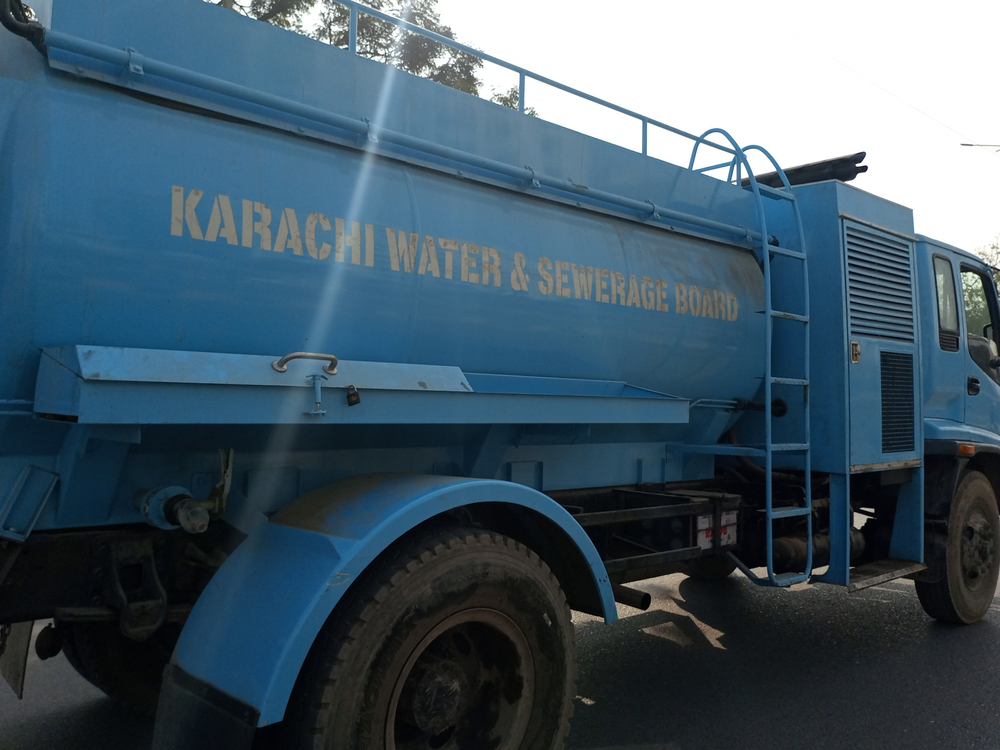
By Aslam Shah
KARACHI: A major scandal emerged within the Karachi Water and Sewerage Corporation (KWSC) after allegations surfaced that consumer data and billing records had been sold on the open market, potentially generating millions of rupees in illicit profits.
Official sources said the October 2025 billing process had been carried out illegally, with the private contractor Usman & Brothers continuing operations despite its contract having expired. The firm had reportedly been retained for 12 consecutive years through kickbacks and commissions, bypassing open bidding procedures. Four employees of Usman & Brothers were terminated on charges of selling commercial and industrial consumer records, while several others were under investigation.
Officials confirmed that, instead of focusing on revenue recovery, certain officers had hosted lavish dinners at hotels and farmhouses, funded by the corporation’s budget allocations for billing operations. The printing and distribution contract, originally awarded years ago, officially expired in June 2025 after a three-month extension. Yet, the same contractor continued to operate under extensions approved by Chief Executive Officer Ahmed Ali Siddiqui.
The renewed contract included bill printing, software maintenance, stationery procurement, and distribution across Karachi’s districts, covering 1.275 million bills per month. If billed at Rs100 per distribution, this could have cost the corporation roughly Rs130 million.
The new arrangement also required field staff to photograph and geo-tag each household, shop, and industrial unit where bills were delivered. The contractor allegedly printed only 1.275 million bills, despite KWSC having 1.8 million registered consumers. Officials claimed that the shortfall, combined with poor-quality printing and cheap paper, had tarnished the corporation’s credibility.
Investigations revealed that Usman & Brothers had originally ranked third in the official bidding process but were declared successful after the top two bidders — Safire Group of Companies and Spendz Courier Service — were disqualified on technical grounds, allegedly through manipulation.
Documents suggested that the disqualification had been based on incomplete paperwork and lack of verification rather than legitimate shortcomings, enabling Usman & Brothers to secure the contract despite having limited IT or printing expertise. Sources within KWSC alleged that several officers in the Tax and Revenue Department were silent partners in Usman & Brothers, receiving commissions in exchange for continued contract extensions without open bidding — a violation of Sindh Public Procurement Regulatory Authority (SPPRA) rules.
Both SPPRA and the National Accountability Bureau (NAB) reportedly refrained from taking action, despite multiple complaints. The contract was first awarded in 2013–14 and had been repeatedly extended without formal approval, even after its expiry in November 2017. Under procurement rules, extensions were only permitted for 90 days, or up to one year with authorization, yet the same contractor had continued for over a decade.
During this period, widespread irregularities were reported in stationery procurement, bill printing, and data management. Records indicated that only 500,000 bills were actually distributed, while payments were claimed for much higher volumes.
Despite the inclusion of IT services — including Management Information Systems (MIS), database servers, and billing software — no tangible work had been completed in these areas. Furthermore, expenditure allocated for 25 customer service centres across Karachi had allegedly been embezzled. Instead of maintaining or upgrading digital infrastructure, internal data had reportedly been leaked or sold to external entities.
Under former City Nazim Mustafa Kamal’s administration, billing and distribution had been outsourced to a private firm, which had led to improved efficiency and revenue collection. However, since then, systemic irregularities and corrupt procurement practices had eroded transparency. Currently, KWSC collected around Rs9 billion annually from 530,000 active taxpayers, far below its potential given 1.8 million registered consumers. The ongoing misuse of authority, manipulation of tenders, and sale of sensitive consumer data raised serious concerns about the governance and transparency of Karachi’s largest utility service.


